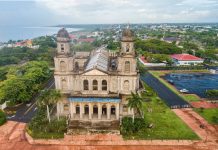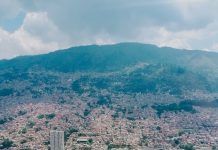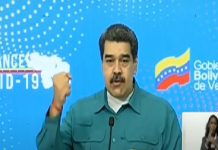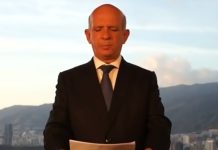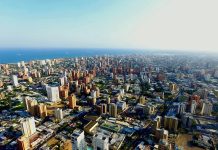A major controversy has erupted in the upcoming international book fair in Madrid, as Spanish journalist Winston Sabogal claimed that the Colombian government didn’t allow the most important Colombian authors to participate in the event for political reasons.
Sabogal, who is the executive director of news outlet W Magazin, wrote in an article that “the government of President Ivan Duque decided to make the list of the authors who were allowed to participate in the event, based on the worst type of political sectarianism.”
He also said that the international book fair will be “fully incomplete” without these writers.

Of course, it is undeniable fact that the absence of these authors is quite shocking. After all they have been some of the greatest Colombian artists and intellectuals over the last few decades, with poems and novels that have set a turning point in the history of Colombian literature.
We’re talking about legendary writers such as Piedad Bonnett, Laura Restrepo, Santiago Gamboa, William Ospina, Fernando Vallejo and Hector Abad. And yes, it is a fact that each of them has been widely critical of the Colombian government.
Over the last few months, following the massive protests that erupted in Colombia’s main cities, Abad and Vallejo claimed that the government of President Ivan Duque was to blame for the crisis that the country was experiencing.
Both writers explained in different articles published on Colombian newspapers that it was an irresponsible act by the Colombian government to propose a tax reform in a moment when poverty increased because of the pandemic lockdowns.
The Colombian government responds.
Responding to Sabogal’s article, Colombian ambassador in Spain Juan Guillermo Plata said during an interview in Libertad Digital that “the Colombian government made the list of the of the authors who are going to participate in the most neutral manner, prioritizing their current work and cultural diversity of Colombia.”
On this point, it is fair to say this is not the first time in Colombia or Latin America that a government allows some artists to participate in certain events depending on their political stance. In fact, this type of act also took place in other Colombian governments, as well as in different Latin American nations including Chile and Brazil.
However, this case in particular is quite astonishing considering that some of the writers that will not be part of the International Book Fair in Madrid are some of the greatest in the history of Colombia. In fact, Abad’s latest novel “Forgotten We’ll Be” has been adapted to a movie by Spanish director Fernando Trueba.
On the other hand, critics have been pointing out that Vallejo’s work is so incredible that he could be considered the greatest Colombian writer after the legendary Gabriel Garcia Marquez.
¿Not good enough for the International Book Fair?
Despite this situation, Sabogal’s article is quite disrespectful because, whether he wanted or not, he’s basically throwing the Colombian writers who are going to participate in the International Book Fair under the bus. Because, indirectly, he made them look as if they are not enough to be part of the event. Or worse, as if they are supporters of the Colombian government.
Because of this, many people on social media have been commenting that some of these writers could write an open letter expressing their disagreement with Sabogal’s article. Some say this could even put at risk their participation at the International Book Fair in Madrid.
The list of Colombian writers who are going to participate in the event includes Darío Jaramillo, Melba Escobar, Jorge Franco, Margarita García Robayo, Dasso Saldívar, Juan Esteban Constaín, Rómulo Bustos, Adelaida Fernández Ochoa, Andrea Cote, Ángela Becerra, Beatriz Helena Robledo, and Juan Luis Mejía.


